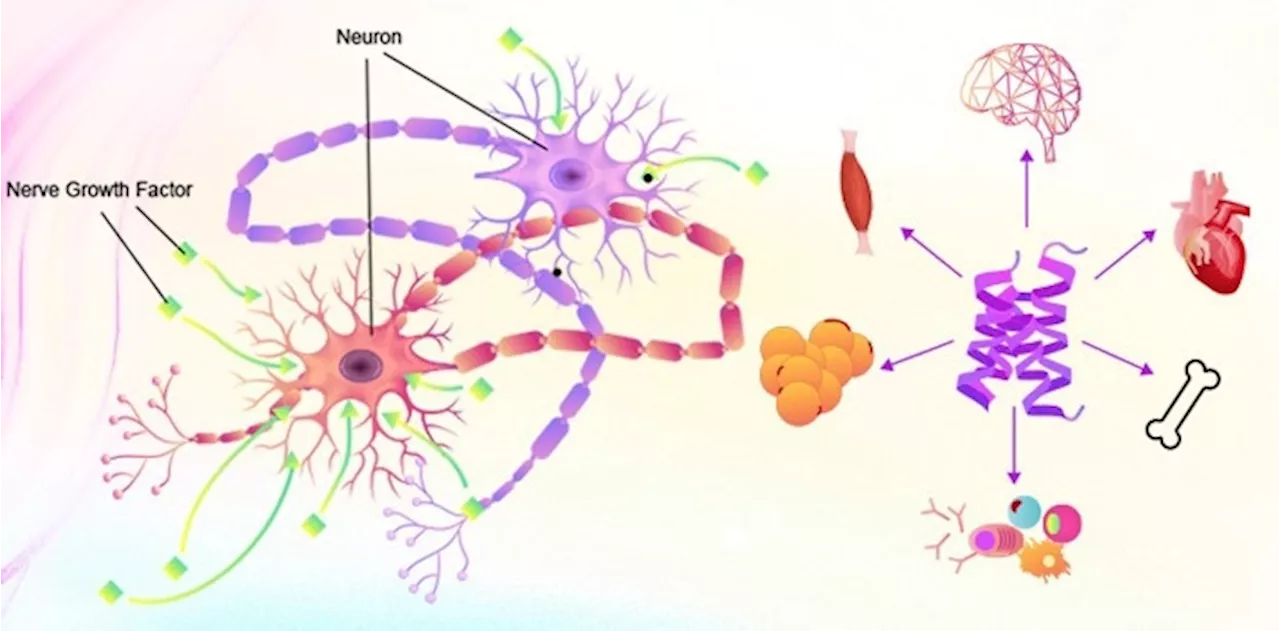Neural Factors from ACROBiosystems can promote nerve cell regeneration and survival.
Neural factors are a class of protein molecules with neurotrophic activity that promote the survival and regeneration of nerve cells. Increasingly, these factors are recognized for their neuroprotective roles in conditions such as stroke and brain injury. When peripheral nerves are injured, protecting neurons from apoptosis is essential for nerve regeneration. Exogenous neural factors can support the survival of various types of neurons, aiding in recovery and repair.
NGF is a protein that promotes the growth, development, differentiation, and fast maturation of central and peripheral neurons. As the first and most extensively researched neurotrophic factor, it regulates the development, differentiation, growth, regeneration, and expression of functional qualities in central and peripheral neurons. NGF has three subunits: α, β, and γ, with the active region being the β subunit.
NT-4 is the fourth member of the neuron factor family, and it promotes neuronal growth, development, differentiation, and maturation. It can help neurons survive, heal, and regenerate after injury, influence neuro-immunity-endocrine interactions, control synaptic plasticity, enhance neuromuscular junction development, and trigger collateral sprouting in normal motor neurons.
United Kingdom Latest News, United Kingdom Headlines
Similar News:You can also read news stories similar to this one that we have collected from other news sources.
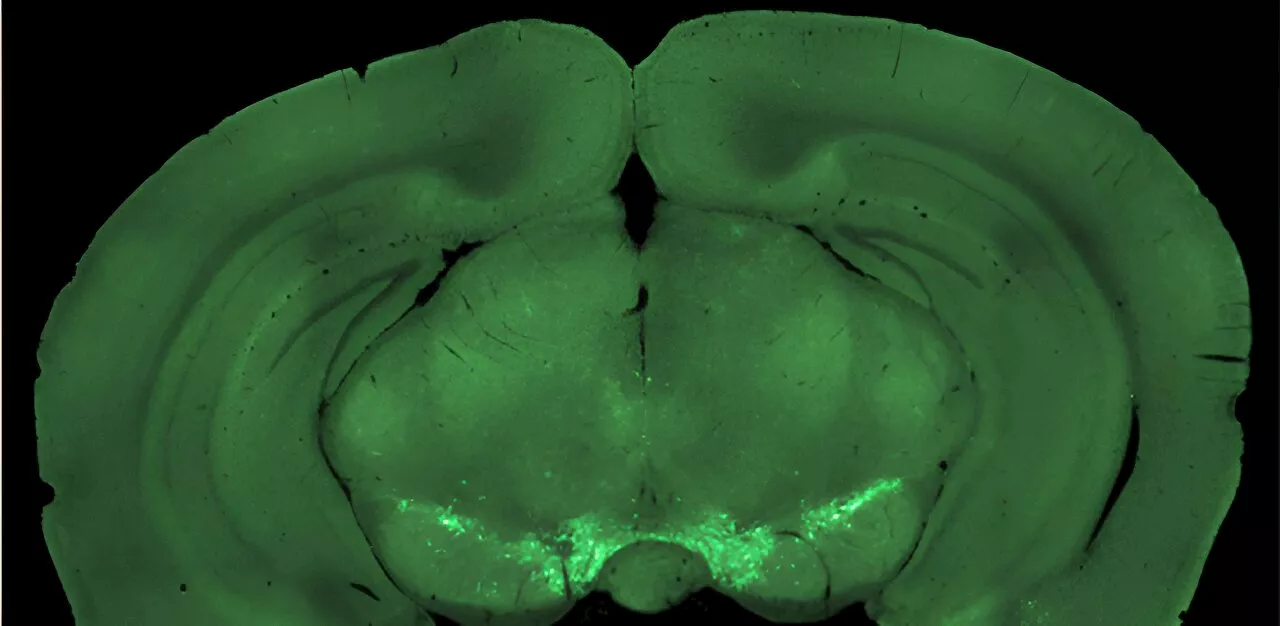 Researchers show how dopamine pathways contribute to complex neural circuits that control goal-directed behaviorEver wondered how your brain decides when to act? Initiating actions with a specific goal in mind is a complex process. Previous research has identified certain parts of the brain and chemical signals involved. However, it remains unclear what information these signals convey and how they spark initiative.
Researchers show how dopamine pathways contribute to complex neural circuits that control goal-directed behaviorEver wondered how your brain decides when to act? Initiating actions with a specific goal in mind is a complex process. Previous research has identified certain parts of the brain and chemical signals involved. However, it remains unclear what information these signals convey and how they spark initiative.
Read more »
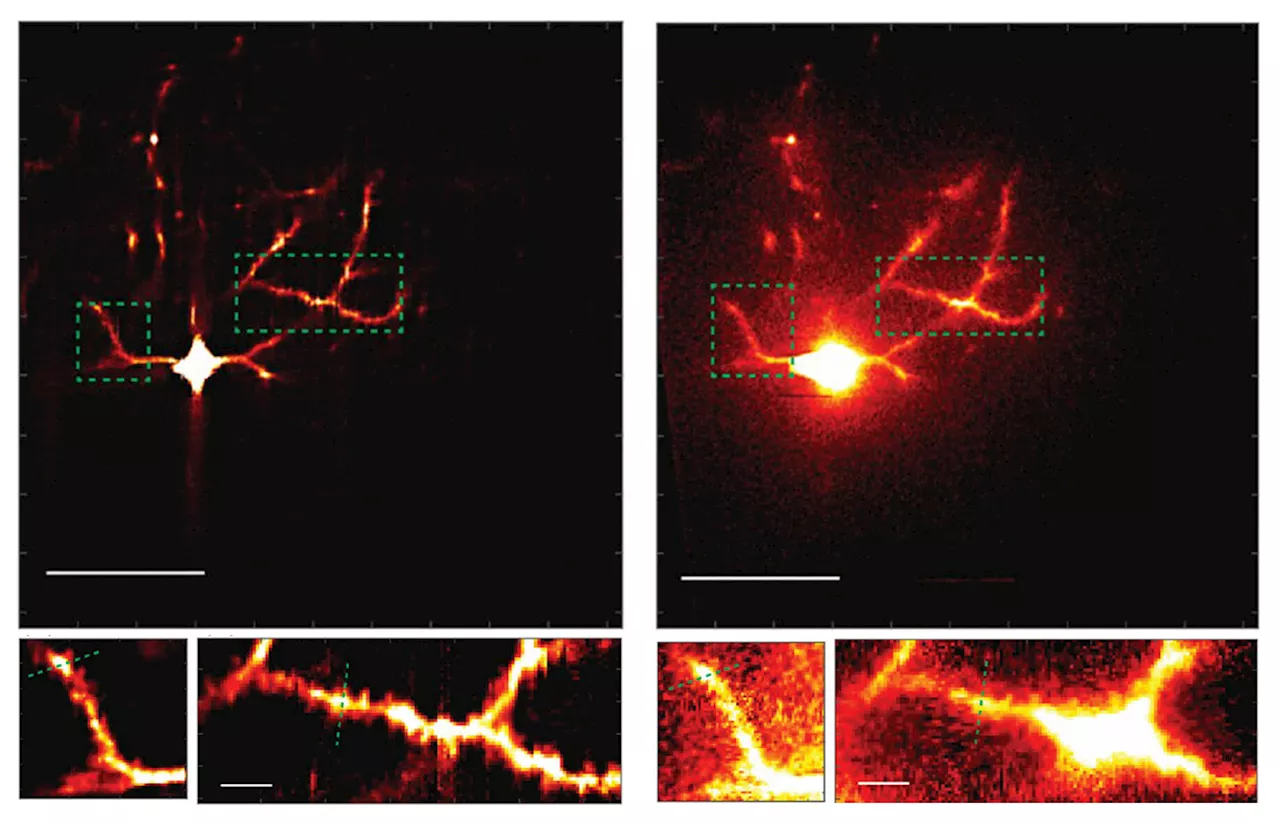 Microscope system sharpens scientists' view of neural circuit connectionsThe brain's ability to learn comes from 'plasticity,' in which neurons constantly edit and remodel the tiny connections called synapses that they make with other neurons to form circuits.
Microscope system sharpens scientists' view of neural circuit connectionsThe brain's ability to learn comes from 'plasticity,' in which neurons constantly edit and remodel the tiny connections called synapses that they make with other neurons to form circuits.
Read more »
![]() With programmable pixels, novel sensor improves imaging of neural activityNeurons communicate electrically, so to understand how they produce brain functions such as memory, neuroscientists must track how their voltage changes—sometimes subtly—on the timescale of milliseconds.
With programmable pixels, novel sensor improves imaging of neural activityNeurons communicate electrically, so to understand how they produce brain functions such as memory, neuroscientists must track how their voltage changes—sometimes subtly—on the timescale of milliseconds.
Read more »
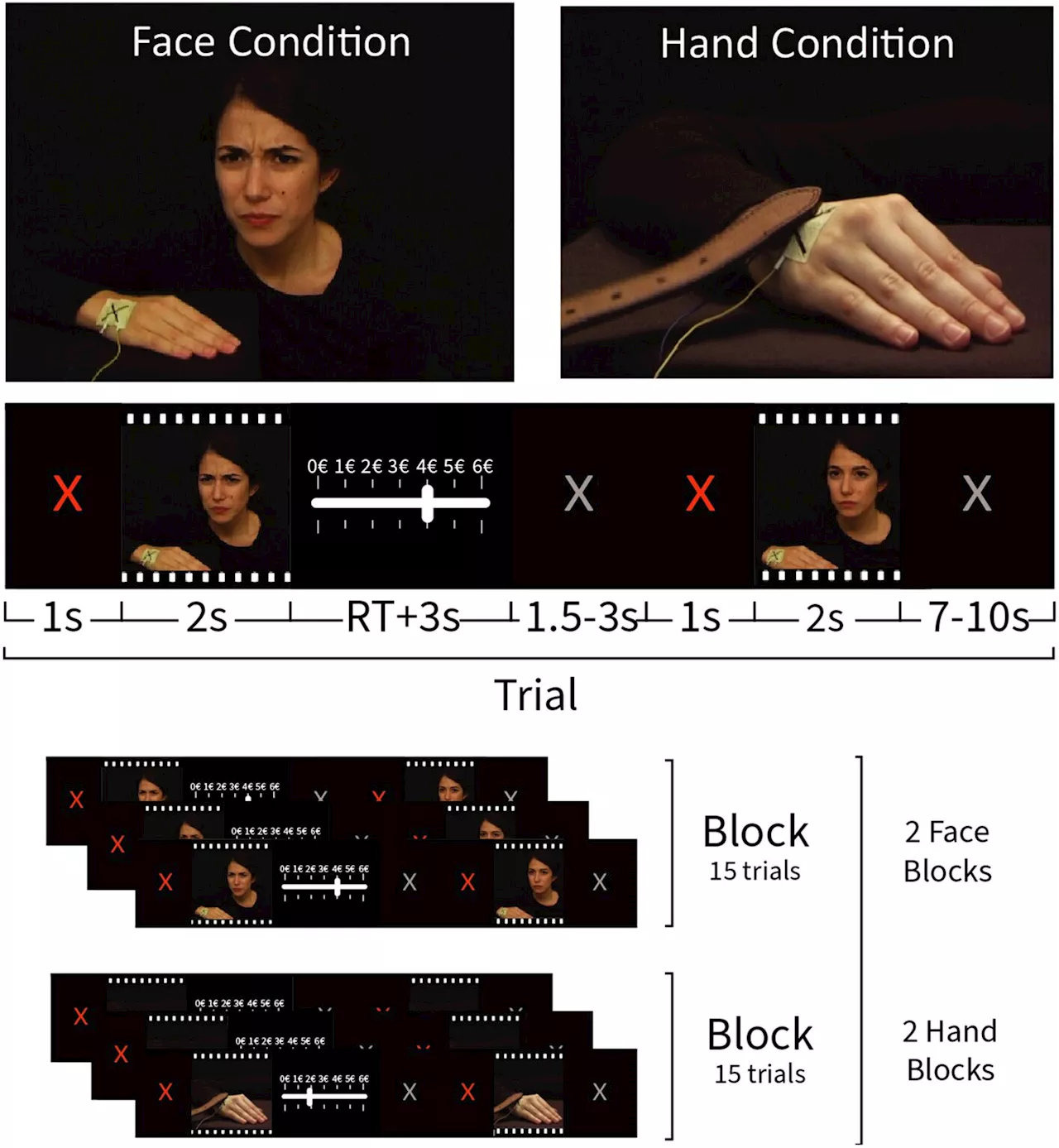 What is the neural mechanism behind helping someone at your own cost?Using a unique setup, researchers from the Social Brain Lab at the Netherlands Institute for Neuroscience have researched the neural mechanism behind a universal dilemma: deciding whether to help someone else even when it involves a personal sacrifice.
What is the neural mechanism behind helping someone at your own cost?Using a unique setup, researchers from the Social Brain Lab at the Netherlands Institute for Neuroscience have researched the neural mechanism behind a universal dilemma: deciding whether to help someone else even when it involves a personal sacrifice.
Read more »
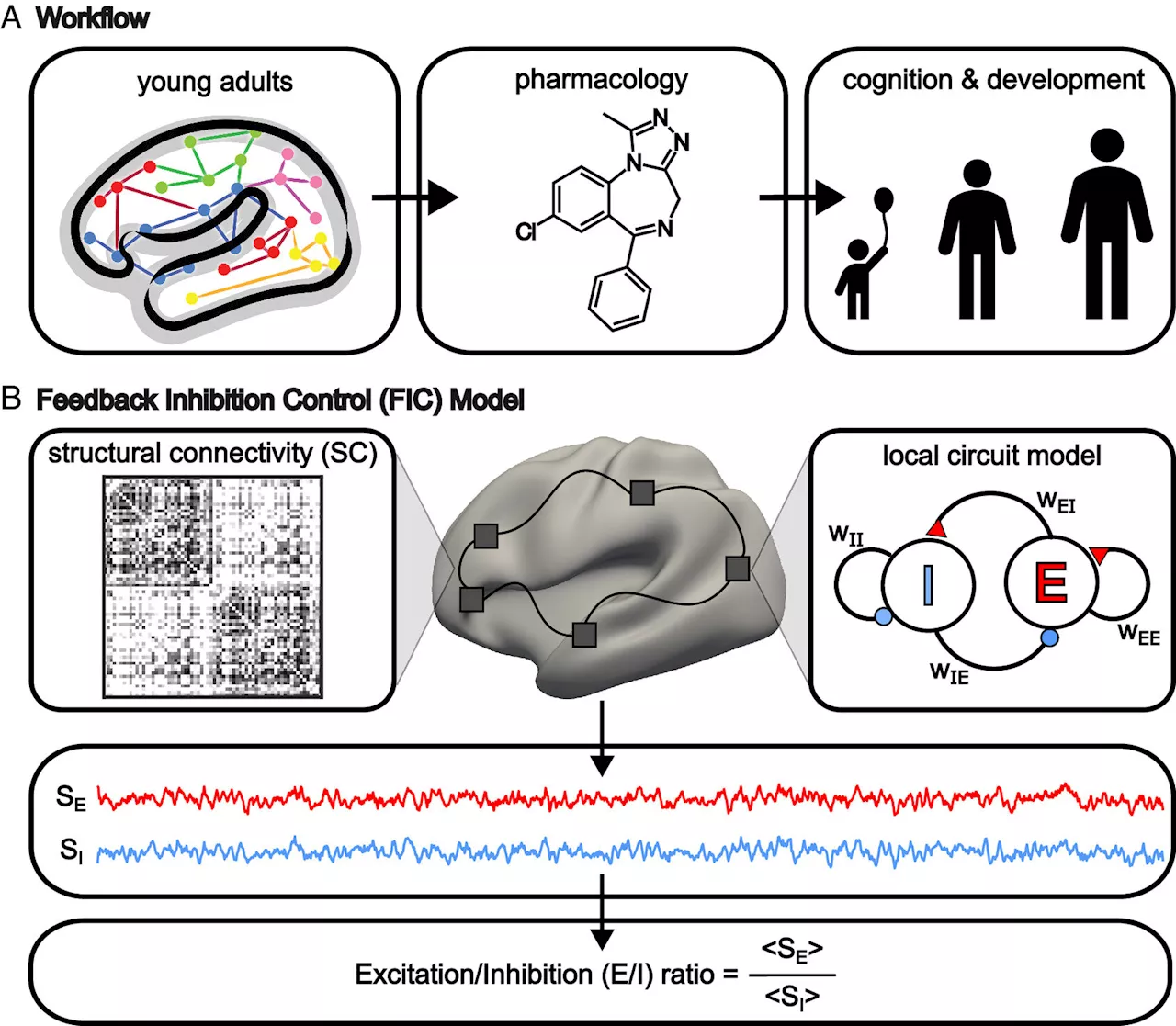 Neural balance in the brain is associated with brain maturity and better cognitive ability, study findsIn a world where external and internal stimuli can throw our entire body system off balance, how does our brain prevent itself from becoming overly stimulated?
Neural balance in the brain is associated with brain maturity and better cognitive ability, study findsIn a world where external and internal stimuli can throw our entire body system off balance, how does our brain prevent itself from becoming overly stimulated?
Read more »
 Mesenchymal stem cell-neural progenitors beneficial for multiple sclerosis, study showsSelect patients with progressive multiple sclerosis (MS) may benefit from mesenchymal stem cell-neural progenitors (MSC-NPs), according to a study published May 23 in Stem Cell Research & Therapy.
Mesenchymal stem cell-neural progenitors beneficial for multiple sclerosis, study showsSelect patients with progressive multiple sclerosis (MS) may benefit from mesenchymal stem cell-neural progenitors (MSC-NPs), according to a study published May 23 in Stem Cell Research & Therapy.
Read more »
